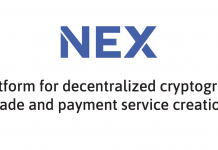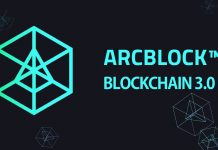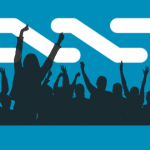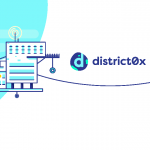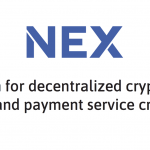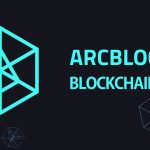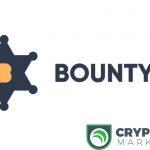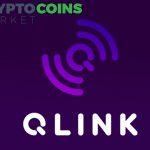INS Ecosystem ICO Date: 27th November 2017 to 25th December 2017.
INS Ecosystem is a global decentralized ecosystem that will enable consumers to buy groceries directly from manufacturers conveniently and at lower prices. Bypassing retailers and wholesalers means a more personalized and transparent grocery shopping experience at lower prices. Manufacturers can join the order fulfilment process, publish their products for sale, carry out promotion and loyalty campaigns, and get feedback from consumer. INS also enables consumers to order those products and vote for new products and manufacturers.
At the INS Platform, every manufacturer controls product pricing and listing. The Platform aggregates all orders and sends requests to manufacturers who deliver products to smart distribution centers. Professional pickers at distribution centers collect orders and pass them to couriers. Couriers deliver orders to customers.
The INS Platform will have well-designed user interfaces to run the ecosystem: consumer website and apps, picker and courier apps, fulfilment and supplier web-interfaces.
BACKGROUND.
The grocery market, one of the largest consumer markets in the world, is forecast to reach 88.5 trillion by 2020. It is reaching a digital tipping point, with much of its growth to come from online. Online grocery, being the target segment for INS, is expected to grow from $98 billion in 2015 to $290 billion in 2020, according to IDG estimates.
Despite the tremendous growth, the grocery market has several large problems:
The grocery market is dominated by retailers. Retail chains capture a very high share of grocery revenue and have a huge influence over manufacturers, causing deep impact on consumers worldwide. Retailers dictate what food is grown and how it is processed, packaged, priced and promoted. As an example, in the UK, four retailers serve as a slim conduit for 7,000 manufactures to sell their products to 25 million households, which demonstrates how the existence of retailer abuse in the grocery industry has not only been allowed to develop but also thrived.
INS is implementing a decentralized ecosystem enabling consumers to save up to 30% on everyday shopping buying directly from grocery manufacturers. Consumers will be able to decide which brands they want and goods they need. They call it “Consumption 2.0” since 21st century customers are tired from a one-way street type of communication, whereby retailers push goods onto them that maximize retailer’s profit - not what consumers really want. They also want consumers to have unimpeded access to independent and local manufacturers, including farmers that do not fit retailer supply chain or procurement terms and can’t get their goods on retail shelves.
Ineffective, costly and outdated trade promotions practice. Grocery manufacturers spend up to 17% of their sales on trade promotions. Trade promotions comprise a growing category of manufacturer expenses directed to wholesale and retail distributors rather than to consumers. Manufacturers spend more than $500 billion on trade promotions annually, and according to some reports 66% of that spend generates negative returns and leads to higher grocery prices.
INS will enable manufacturers to market their goods directly to the consumers. No more costly and inefficient trade promotions grabbed by retailers and wholesalers. INS will enable manufacturers to create bespoke marketing programs to reward their customers directly. These programs run on smart contracts and are powered by the INS token as a means of reward. It is similar to miles-based reward programs of many airlines, but more advanced, cheaper to run and personalized thanks to smart contracts behind them. This was hardly possible before the blockchain and smart contract era.
Large or small, no manufacturer has enough power. Global constituents, such as Procter & Gamble, Nestle, and Unilever, do play a role in the industry and have more negotiating power than small manufacturers. Still, these companies simply are no match for the extensive control retailers have on end-customers throughout the supply chain. For example, Wal-Mart’s sales are approximately 5 times greater than those of its largest supplier, Procter & Gamble. Wal-Mart accounted for 16% of Procter & Gamble sales in 2016.
Retailer buyer abuse extends beyond normal pressure. The explanation of this pressure is abuse of buyer power. Such power allows retailers to determine what will and will not be stocked, and on what terms, such as sources, quantity, quality, delivery schedules, packaging, returns policy, and above all, price and payment conditions. Indeed, a supermarket company wields an important bargaining chip, namely the threat to stop selling one or more products.
Evidence of retail power abuse. The Competition Commission in the UK, for example, did find that major retailers enjoy a price advantage that exceeds the cost difference. Additional departures from proper retail conduct included: delaying payments to manufacturers beyond the terms in the contracts; and changing quantities or product-quality specifications at less than three days’ notice, and without paying compensation to manufacturer.
INS will help grocery manufacturers to bypass retailers and wholesalers and directly sell and promote their products to consumers.
Waste in various areas of the supply chain. In distribution centers and on grocery store shelves, food is being wasted. Every night, some perishable items must be thrown out. According to a recent survey, 400 million pounds of food is served by supermarkets, yet nearly a third of it is wasted annually. Unfortunately, current retail systems are designed to reduce stock-outs rather than measure and manage food waste. Therefore, managers optimize to ensure food is left over on the shelf.
INS will implement the effective “pull” system to reduce inventories and out-of-stocks that would decrease the food waste.
HOW IT WORKS.
You make an order on the website or in mobile app. Manufacturers deliver their products to smart distribution center closest to your delivery address. Distribution center staff pack your order. Courier delivers your order to you
All ecosystem participants create an account on the INS Platform. During the registration, the system will create a user profile and a wallet. Each participant of the ecosystem will be provided with a wallet that preserves all data in the decentralized database and interact with other parties, utilizing smart contracts.
BLOCKCHAIN LEVERAGES.
Smart contracts.
Smart contracts provide the tools and framework to create a new generation of marketplaces where supply and demand sides can engage in trusted trading transactions, according to various business rules, without the need of a central brokerage entity. Consequently, the same way online marketplaces disrupted many traditional brick and mortar businesses, blockchain and smart contracts will give birth to a new kind of peer-to-peer marketplaces that will unsettle the current ones.
INS will provide a number of smart contract templates that will be used to facilitate the sale mechanism. The peer-to-peer structure is the perfect fit for the decentralized nature of the INS ecosystem and has the benefit of handing over the power back to the people participating in the ecosystem.
Payments.
The payment process in ecommerce currently entails more than 10 different steps to settle a transaction and up to 15 separate fees to pay for payment gateways, thus making transaction fees range from 2% to 6%, a long route that could be cut short with blockchain use. Blockchain is the perfect tool for ecommerce to be more efficient and more trustful. Payment processing through blockchain has a significantly bigger potential for transaction high speeds and low prices, let alone all the possible variety of ways smart contracts can improve both ecommerce and payments. A tokenized ledger will provide a complete token-based system, similar to rear money where tokens are sent and exchanged at different times and for different reasons, based on predefined rules and events.
Supply chain management.
Ecommerce companies must manage a complex supply chain of manufacturers, third-party vendors, carriers and logistics providers. A blockchain of the transaction, containing order details and negotiated fees and commissions (in the form of smart contracts) will be used to capture documents, delivery and possible return events, and drive financial settlement with fewer opportunities for dispute. The public-private nature of blockchain records means that each party can make data visible to the others. All parties have visibility into the transaction and no custom interface has to be negotiated between partners (only to/from the blockchain).
The blockchain is the system of record for the entire transaction. It doesn’t merely record the transaction, it drives the whole process. This will reduce time delays, added costs and human errors that plague transactions today, automate inventory control, and streamline fulfillment processes, but errors to some extent are possible since grocery products are not digital, the blockchain records of their track is inevitably post-factum.
Storage.
A decentralized file storage network (with options from IPFS to Storj) is used to maintain up-to-date databases of products listed by manufacturers. Consumers can apply sorting and filters to choose what they want to buy. Manufacturers may distribute proprietary apps derived from the reference implementation, in which they can choose specific sorting methods and filters for products.
PARTICIPANTS.
Manufacturers.
Manufacturers are companies or individuals in the business of fresh produce, groceries and consumable household items. They range from local farmers to large multinationals, such as Procter & Gamble, Unilever, Coca-Cola, etc.
Manufacturer roles include:
- Publish products.
- Deliver products ordered by consumers to fulfillment centers.
- Promote the INS ecosystem by bringing traffic via promotions of derived apps.
Incentives for manufacturers include:
- Publish products to make them easily available for ordering.
- Provide fair prices on their products and compete openly with other manufacturers.
- Customize the INS official app according to their own branding, promote it to consumers to increase repeated usage and earn cross-marketing rewards.
- Serve in a trustful manner to keep a high rating score and attract more consumers.
- Provide attractive promotion and loyalty rewards to acquire and retain consumers.
- Get direct customer feedback.
Consumers.
Consumers are individuals or companies that want to buy online high-quality groceries at cheaper prices. Orders can be placed via the INS website, INS app or custom apps derived by manufacturers from the app reference implementation.
Consumer roles include:
- Search products listed by manufacturers, make orders and pay for them.
- Participate in feedback requests.
- Receive promotion, loyalty, referral and feedback rewards.
Incentives for consumers include:
- Order everyday grocery and consumable products cheaper than at retail stores.
- Get orders delivered to the doorstep without need to spend lime on offline shopping.
- Leave feedback to influence manufacturers.
- Get different types of rewards.
Fulfillment center operators.
Fulfillment center operators are owners or lessees of existing warehousing facilities and/or delivery fleet. They provide the space where workers take products delivered by manufacturers and assemble orders.
INS plans to establish a basic network of fulfillment centers in up to 8 cities across the world to accelerate adoption, establish effective business processes, and strengthen position by combining the online platform scale with the magnitude of a physical network of fulfillment centers and their associated operations. INS will seek to engage independent fulfillment center operators to join the INS ecosystem to ignite further geographical expansion.
Fulfillment center workers.
Fulfillment center workers, employed by a fulfillment center operator or acting as independent contractors, will follow instructions received via the INS fulfillment app to:
- Collect products delivered by manufacturers to fulfillment centers.
- Assemble products into orders.
- Pass assembled orders to couriers.
INS will seek to attract independent workers to join the ecosystem.
Couriers.
Couriers, employed by a courier company or acting as independent contractors, will follow instructions received via the INS fulfillment app to:
- Pick up orders from fulfillment centers.
- Deliver orders to consumers.
INS will seek to attract independent couriers and courier companies to join the ecosystem.
INS TOKEN USES.
Manufacturers:
- Rewards: loyalty, promotion, cross-marketing, feedback.
- Minimum balance hold.
Consumers:
- Payment for orders.
INS:
- Referral rewards to consumers.
PREVIOUS ACTIVITY.
INS founders gained a first-hand and practical experience in the grocery industry while developing and growing Instamart, the largest venture-backed grocery delivery operator in Russia. Instamart employs over 200 people, has signed contracts with the largest retailers in the country, and works with the leading grocery manufacturers.
Four years of operating experience in the grocery retail sector helped to identify major inefficiencies and abuses in the industry’s current construct. INS pursue a large opportunity to disrupt the global grocery retail market via establishing a decentralized and fair ecosystem that directly connects manufacturers and consumers.
Instamart developed direct relationship with manufacturers, including the world’s largest multinational FMCG companies. The company has launched a number of marketing projects aimed at direct communication between the brands and consumers, including ad banners, sponsored deliveries, traffic generation, sampling and co-branded packaging.
ROADMAP.
HOW ADVANCED IS IT?
They’re on the R&D stage now.
WORKING PRODUCT.
Starting from 2019 when they will start geographical expansion and growing the Ecosystem.
SIMILAR PROJECTS.
Ambrosus.
The Ambrosus network is a blockchain-based ecosystem for supply chains, ensuring the origin, quality, compliance and proper handling of items tracked by the network.
Ambrosus’ primary focus is on improving supply chains for life-essential products, specifically food and medicine, although the protocol can be applied to other supply chains.
NAU.
NAU is a new platform that will connect retailers and consumers in a truly unique way that has never been done before. The primary goal in mind is to eliminate the need for intermediaries, useless expenses, and wasted efforts that severely hinder the ability of retailers to attract new clients and promote their business efficiently. While providing platform users with the opportunity to actually earn money while doing business with retailers via offer sharing, referrals, activity, and app usage.
The NAU platform operates by a mobile application and website. Advertisers and retailers will be able to launch their promotions, offers, and deals through the platform’s application using NAU tokens. Users will be able to discover appealing offers on a geolocation and filtered basis and easily claim them. Additionally, users will be rewarded for referring their friends and followers to the NAU platform and retailers with discounts, promotions, gifts, and awesome rewards.
Essentially, the team behind NAU is creating an ecosystem from which both, retailers and consumers, can draw maximum benefits without having to shuffle through annoying ads, scalp coupon websites, and really go out of their way to find attractive deals and new clients. Imagine being materially rewarded for sharing great deals with your friends and referring them to retailers via the NAU platform that is quite unique.
HOW IS DIFFERENT FROM OTHER PROJECTS IN THE SPACE?
The INS Ecosystem is the first and only decentralized platform directly connecting grocery manufacturers and consumers. It eliminates the costly intermediaries - wholesalers and retailers - and passes the saved virtue to consumers!
In addition to that, they have more than 4 years of business experience in the sector.
USER REVIEWS.
[Awesome purpose for this coin, willing to change the way of grocery system into a fully online system than will make or maybe remove any grocery market and the transaction will be fully online and the goods will be sent directly form the manufactures to the customers.]
[You’re right, INS hopes to disrupt the grocery retail industry.]
[Dear INS supporters, As you might know, we decided not to run a public pre-ICO. We received lots of interest from institutional investors and raised planned funds earlier than expected.]
[when will I receive dividends from my investments in tokens?]
[INS is not designed to offer earnings. INS token is a product token which gives its holders an opportunity to exchange their ICOs tokens for tokens of other projects selected by the ICOS token holders.]
[Is there a Beta version?]
[The test launch in the fourth quarter of 2018 will be our pilot project for INS Ecosystem.]
[If I understand correctly the suppliers list the items they sell. If an order gets placed, who takes care of the logistics? The supplier needs to take the items to the distribution center him/her self?]
[It’s not strictly defined right now. So manufacturers will do it on their own at the first stage, but the prices will still be lower than those provided by retail networks due to their huge commission for their services. Later on there can be varied sets of rules for the interactions between smart distribution centres and manufacturers.
[The reason I’m asking is because logistics is a big part of the world’s problems. Most optimization aproaches use the centralization aproach (distribution centers) but usualy visit many customers on the way to the wearhouse if the truck isn’t full (routing problem)]
[I see retail, supply chain to be a great use case for blockchains, but at a scaled level, you will be looking at 1000s of transations per second. I don’t see that being addressed in the WP]
[As the existing blockchain platforms such as Ethereum have inherent limitation in transaction bandwidth (currently limiting to a dozen tx/sec), and prospective platforms and frameworks are only in the development stage, we also consider designing and developing our own INS blockchain platform in the future, where nodes are selected from a semi-trusted set of supporters. Given the trust in the nodes, we will implement one of much faster consensus algorithms from the BFT family (HoneyBadgerBFT/Zyzzyva/others), enabling up to thousands transactions per second.]
[INS ECOSYSTEM is a grocery industry, here can buy direct from brand companies product with low price….and enabling manufacturers to market their goods directly to the consumers with blockchain technology…]
[How suppliers and retailers will keep food fresh?]
[IBM has joined with a group of food supply companies and retailers to use the computing company’s blockchain tech to keep food fresh. Currently, it can take up to two weeks to track down the source of contaminated foodstuffs. But just like tracking cryptocurrency transactions all over the world, this consortium will harness IBM’s enterprise blockchain services to give its members access to a constantly-updating ledger of food, from source to store.]
[Hello, INS! do you work only with big companies, such as unilever, i haven’t found any mentioning of small manufacturers, farmers? will be organic local food be represented in your ecosystem?!]
[Hello! Yes, we have agreements with both multinational giants, and small local companies.]
[Can you explain the token utility in more detail? Will the token be usable for purchasing goods from manufacturers on the platform? Or are they used for other purposes?]
[The Ins token is planned to be the only means of exchange for handling all types of rewards and one of the means of payment within the INS Ecosystem. So yes, you will be able to buy grocery products with INS tokens directly from the manufacturers and participate in different referral and loyalty programs]
[and ebay and such likes? anything in common with them?
[We are definitely different! The most successful marketplaces such as Amazon or eBay came to life because they managed to remove middleman entities, that were mostly brick and mortar operations, and replaced them with an automated piece of software accessible over the Internet. There’s one important aspect to highlight though. The model is often explained as “removing the middleman” without emphasizing that what actually happens is not a complete removal of the broker in the middle, but rather a replacement of the old broker with a new kind of broker. A much better type of broker, built around a software platform, but still a middleman entity between the supply and demand sides. That centralized software architecture is how online marketplaces are able to capture value and is the critical building block of their business model. For almost two decades, nothing seemed to disturb that position. There wasn’t any other technology that could be more efficient than an automated central software to handle the relationship between the supply and demand sides. However, in the past few years, something interesting started to happen, in a totally different domain. The blockchain architecture allows peer-to-peer transactions to take place in a secure way without the need for any central entities. Blockchain and smart contracts provide the tools and framework to create a new generation of marketplaces where supply and demand sides can engage in trusted trading transactions, according to various business rules, without the need of a central brokerage entity. Consequently, the same way online marketplaces disrupted many traditional brick and mortar businesses, blockchain and smart contracts will give birth to a new kind of peer-to-peer marketplaces that will unsettle the current ones. It’s not a matter of “if” but rather “when” the new decentralized structure will take over as the technology keeps maturing and improving. The peer-to-peer structure is the perfect fit for the decentralized nature of the Internet and has the benefit of handing over the power back to the people participating in the ecosystem.]
[a decentralized market you say, and what is the point of that decentralization?]
[The point of decentralization is that when the system is up and running, no part of it is irreplacable! All of the Ecosystem’s participants (manufacturers, couriers, smart distribution centre workers - everybody) will be independent from one another, and none will be able to push his rules on the others!]
[Btw, and what about the delivery of perishables? Fruits? Veggies? Won’t it become a problem?!]
[The delivery of perishables, like fruits and vegetables, is considered to be an issue for e-commerce. Though there is a need for immediate delivery, we are going to build all the necessary infrastructure to handle it. There will be a network of fulfillment center operators to provide the space where workers take products delivered by manufacturers and assemble orders. INS plans to establish a basic network of fulfillment centers in up to 10 cities across the world to accelerate adoption, establish effective business processes, and strengthen position by combining the online platform scale with the magnitude of a physical network of fulfillment centers and their associated operations. INS will seek to engage independent fulfillment center operators to join the INS ecosystem to ignite further geographical expansion. And then there will be couriers, employed by a courier company or acting as independent contractors, who are going to deliver orders to the consumer.]
[Prices and rewards i get will depend on the way of payment? how will they differ?!]
[The most convenient and most profitable way is to pay in INS tokens - you will get full access to rewards and the general prices will be by 5% lower because manufacturers will accept to sell products with discounts when paid in INS tokens! If you pay in BTC or ETH you will get general prices plus transaction fees. And your access to rewards will be limited. If you pay in fiat - once again you are going to get general prices plus card fees, and limited access to rewards.]
[Ok, but are you sure, people are ready to buy grocery online, not in a traditional way? I mean, you know, touching, sniffing, etc…]
[Our experience in the grocery retail sector helped us to understand that consumers are becoming increasingly time-starved. Moreover, buyers are overcoming the biases of wanting to touch and see food and grocery products before buying. Consumers, pressed for time, are looking for options which offer increased convenience and saving time. INS Ecosystem online high-quality grocery buying offers exactly that.]
[Hi! do you charge fees on the payments on the ins platform?]
[We do not charge any fees on payments. However, third party payment processors may charge fees. When paying in BTC, ETH, LTC, or DASH, transaction fee is charged by the relevant blockchain infrastructure. You set the transaction fee amount, and the transaction speed is determined by the network availability and the fee amount you set. Please read more about the transactions in the currency you’re going to use in order to avoid confusion and complications , before participating in the ICO. When paying in USD, the wire transfer fee and its speed depends on your bank. All fees charged by financial institutions in connection with wire transfers are paid by the prospective INS token holders.]
[Will the smart contracts be between consumers and ins or consumer and manufacturers?]
[There will be fulfillment smart contracts implemented for: ● Basic functionality like trading tokens between addresses ● Product publishing ● Fulfillment process reporting ● Reward mechanisms]
[What will be the first sphere - food, healthcare, hygiene or maybe something else?]
[Generally speaking, we are planning to cooperate with local and global FMCG producers, so yes, grocery, toiletries, cleaning products etc.]
[Are fulfillment centers more the less the same like common ware houses? It seems so, but how are they going to survive and managed by whom? I would understand if they belong to the INS Ecosystem itself, so you can operate it, but if other people/organizations will manage centers (that was my impression from reading your paper) then they should take some fee for handling orders to sustain. Will prices are still lower in such case if orders handling is managed by a third party - neither manufacturer nor consumer (and not even INS team)?]
[I’d like to notice that during the initial stages of development of the ISN Ecosystem we’re planning to cooperate with fulfillment centers and logistics companies which are already operating in this business. So there are no expences on building and maintainig them, but of course, there will be a small fee about 1% which still allows to keep the prices much lower, right? ]
[Is it confirmed that fulfillment centres will have 1% fee only? The website of INS states that 15 transaction fee it is for INS system itself. Then again, it it true that certain expenses won’t be applied for the companies running centres, but will 1% fee cover storage, sorting, delivering goods ordered through INS platform?]
[The percentage is approximate here to show how small it could be, but the exact amount will depend on a definite smart contract which a certain fulfillment party runs]



